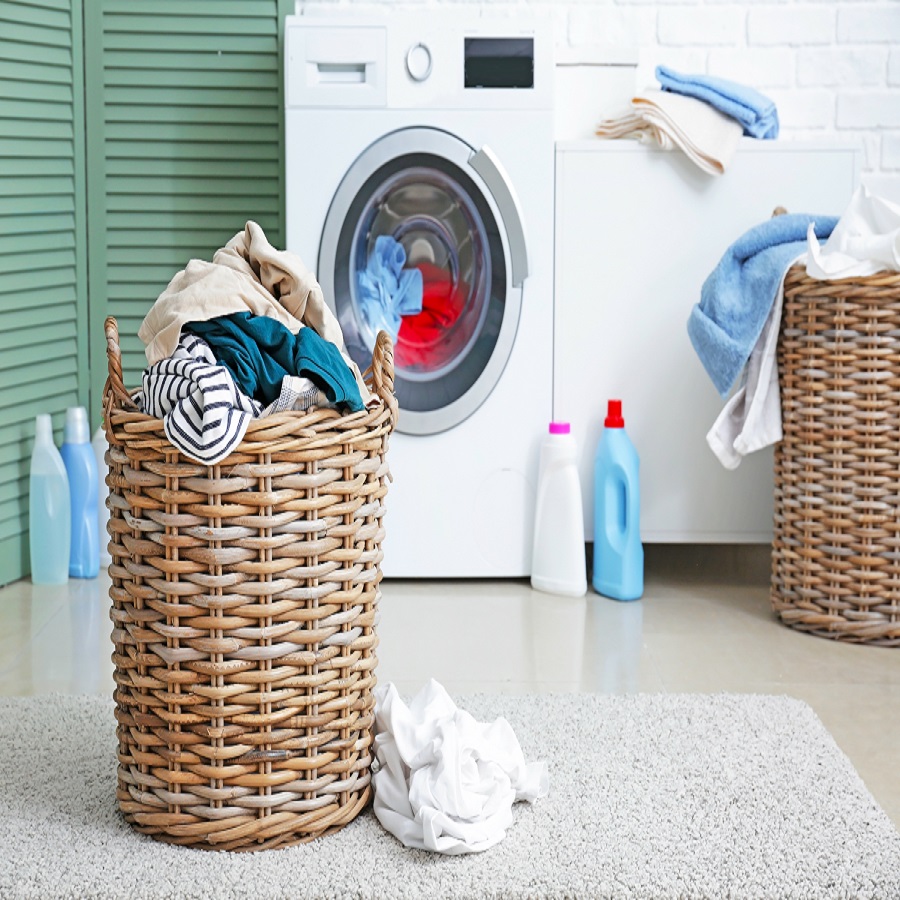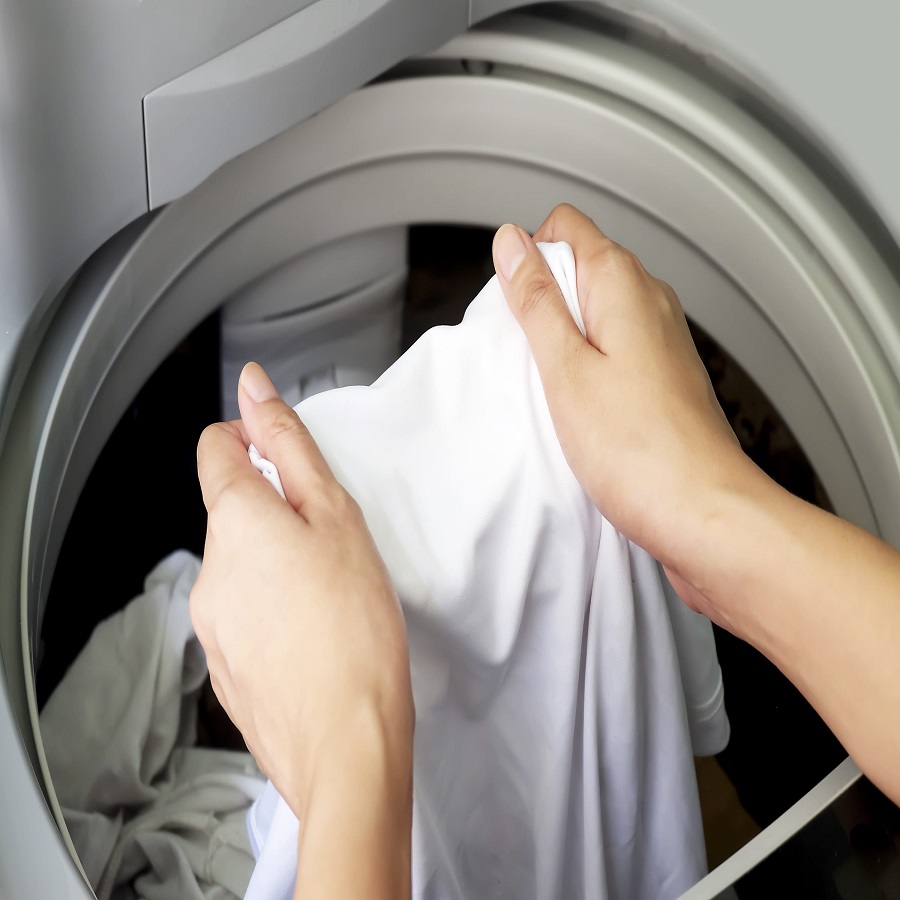Introduction
Can i wash clothes without detergent – In the realm of laundry, traditional detergents have been the go-to choice for decades. However, rising concerns over environmental impact, skin sensitivities, and the desire for cost-effective household solutions have led many to explore alternative methods for cleaning clothes. This guide delves into various effective techniques that can clean your clothes without relying on conventional detergent, highlighting both DIY solutions and commercial alternatives.
 Understanding the Drawbacks of Traditional Detergents
Understanding the Drawbacks of Traditional Detergents
Before exploring alternatives, it is essential to understand why some individuals are seeking non-traditional cleaning methods:
- Environmental Considerations: Many detergents contain phosphates, surfactants, and synthetic fragrances that can harm aquatic ecosystems when they enter waterways. Additionally, the production and packaging of these products contribute to plastic pollution.
- Sensitive Skin: Traditional laundry detergents can cause skin irritations and allergic reactions due to the harsh chemicals and artificial fragrances they contain. People with eczema or sensitive skin often find relief by avoiding these substances.
- Cost: The cumulative expense of purchasing detergent can add up over time. Alternative cleaning methods can be more budget-friendly in the long run.
- Efficacy Concerns: Some users find that certain detergents aren’t as effective for specific stains or fabric types, prompting them to search for more targeted cleaning solutions.
Alternative Cleaning Methods
1. Baking Soda
Baking soda is a powerful natural cleaning agent known for its deodorizing properties.
- How to Use: Add 1/2 to 1 cup of baking soda to your washing machine along with your clothes. It can help lift stains, soften fabrics, and eliminate odors.
- Effectiveness: Baking soda works well for general cleaning and can boost the effectiveness of other alternatives when used in combination.
2. White Vinegar
White vinegar is a versatile household staple that acts as a natural fabric softener and cleaner.
- How to Use: Add one cup of white vinegar to the rinse cycle. It can help dissolve soap residue, remove odors, and brighten whites.
- Effectiveness: Vinegar is particularly effective at removing mildew odors and restorative for dingy whites, making it a great choice to use in conjunction with baking soda.
3. Lemon Juice
Lemon juice has natural bleaching properties, making it suitable for brightening whites and removing certain stains.
- How to Use: Mix equal parts lemon juice and water and apply it directly to stains before washing. You can also add a cup of lemon juice to the wash cycle.
- Effectiveness: Lemon juice is particularly effective against stains caused by sweat, food, and environmental pollutants.
4. Castile Soap
Made from vegetable oils, Castile soap is a biodegradable soap that is gentle yet effective.
- How to Use: Use one to two tablespoons of liquid Castile soap per load in place of detergent. It works particularly well for lightly soiled clothing.
- Effectiveness: This soap can efficiently clean various fabrics without the harsh effects of traditional laundry detergents.
5. Borax
Borax, or sodium borate, is a naturally occurring mineral that is often used as a cleaning agent.
- How to Use: Add 1/2 cup of Borax to your wash to boost cleaning power. It can work synergistically with other alternatives.
- Effectiveness: It’s particularly effective in softening water, which can enhance the cleaning capability of other ingredients.
6. Washing Soda
Washing soda (sodium carbonate) is another effective natural agent that can help break down stains and remove odors.
- How to Use: Add 1/2 cup of washing soda to your laundry to enhance cleaning.
- Effectiveness: It is excellent for tackling tough stains and is particularly effective for greasy fabrics.
7. Essential Oils
For a pleasant scent and additional antibacterial properties, essential oils can be added to laundry.
- How to Use: Add a few drops of essential oils, like tea tree, lavender, or eucalyptus, to your washing machine. These oils not only provide a refreshing scent but can also combat bacteria and odors.
- Effectiveness: They work best when used in tandem with other cleaning agents, enhancing both fragrance and disinfection.
Commercial Alternatives
In addition to DIY options, there are several commercial products designed for laundry cleaning without harmful chemicals:
- Soap Nuts: These are the dried fruits of the sapindus tree, which contain saponin, a natural surfactant. Simply place a few soap nuts in a cotton bag and toss them in the wash; they can be reused several times.
- Eco-Friendly Detergents: Look for brands that offer plant-based and biodegradable detergents, which minimize environmental impact without sacrificing cleaning power.
- Laundry Strips: These compact, lightweight strips are an eco-friendly alternative to traditional detergent. They are free from harsh chemicals and are easily dissolved in water.
Tips for Successful Laundry Without Detergent
- Stain Treatment: Pre-treat stains with a paste made from any of the cleaning agents mentioned above for better results before washing.
- Cold Water Wash: Washing clothes in cold water can save energy and is often sufficient to clean clothes when using natural agents.
- Test Fabrics: Always perform a patch test on a hidden area of fabric when using new substances to avoid discoloration or damage.
- Optimize Machine Settings: Use the appropriate water levels and cycles suitable for your types of fabrics and loads.
Understanding the Need for Detergent-Free Washing
Many commercial laundry detergents contain synthetic chemicals that can be harsh on fabrics, harmful to skin, and detrimental to the environment. A significant portion of these chemicals enters our water systems, contributing to pollution and potentially damaging aquatic ecosystems. Additionally, residue from these detergents can linger on fabrics, leading to skin irritations and allergies for sensitive individuals. As awareness of these issues grows, more people are looking for natural alternatives that are not only effective but also eco-friendly.
Strategies for Washing Clothes Without Detergent
- Using Alternative Cleaning Agents:
- Baking Soda: This household staple is a natural deodorizer and can help to soften water, making it easier to lift dirt and grime from fabrics.
- Vinegar: White vinegar acts as a natural fabric softener and helps to break down stains. Additionally, it can neutralize odors and restore the brightness of clothes.
- Washing Soda: This powerful cleaning agent can be used to combat tough stains and enhance the cleaning power of your laundry routine.
- Castile Soap: A natural soap made from vegetable oils, Castile soap is an effective alternative that can remove dirt without the need for harsh chemicals.
- Cold Water Washing:
- Most of the energy consumed during laundry comes from heating water. Washing clothes in cold water not only saves energy but also prevents colors from fading and fabrics from shrinking. It is effective in cleaning and works well with many of the natural alternatives mentioned earlier.
- Essential Oils:
- For those who miss the fresh scent of laundry done with detergent, essential oils can be a great addition. Oils like lavender, tea tree, or lemon can add a pleasant fragrance to your laundry, while also providing antimicrobial properties.
- Eco-Friendly Laundry Balls:
- These reusable balls can be added to your wash cycle. They work by agitating the clothes, which aids in the cleaning process. Some are infused with minerals that help to soften the water or enhance cleaning, reducing the need for any additional cleaning agents.
- Sunlight and Fresh Air:
- Utilizing sunlight and fresh air is one of the oldest and most effective methods for cleaning clothes. Drying clothes outside not only gives them a fresh scent but also uses ultraviolet rays to naturally disinfect fabrics.
- Steam Cleaning:
- For those who want to minimize washing frequency, steam cleaning can be an excellent alternative. It effectively kills bacteria and odors without the need for water or detergent, making it particularly useful for refreshing garments that are not heavily soiled.
Benefits of Washing Clothes Without Detergent
- Healthier Home Environment:
- Reducing the number of chemical cleaners in your home leads to better indoor air quality. Many commercial detergents contain volatile organic compounds (VOCs) that can contribute to respiratory problems and allergies. Natural cleaning agents are far less likely to trigger these issues.
- Reduced Environmental Footprint:
- By opting for detergent-free laundry solutions, households can significantly decrease their environmental impact. The reduction of harmful chemicals entering waterways helps preserve marine ecosystems, while the decreased reliance on energy-intensive practices (like hot washing) contributes to lower carbon emissions.
- Cost Efficiency:
- Over time, washing clothes without detergent can lead to substantial savings. Basic ingredients like vinegar and baking soda are significantly cheaper than commercial laundry products and can be used in various other cleaning applications throughout the home.
- Fabric Longevity:
- Detergents can wear down fabric fibers over time, leading to pilling and fading. Washing with gentler alternatives prolongs the life of clothing, maintaining the quality of fabrics for longer.
- Simplified Laundry Routine:
- Ditching detergent means fewer products to buy, store, and manage. A simplified routine can make laundry day less cumbersome and more streamlined.
- Fostering a Sustainable Mindset:
- Adopting detergent-free washing encourages a broader environmental consciousness. This practice can inspire additional sustainable habits, such as upcycling clothes, reducing water usage, and supporting eco-friendly brands.
In conclusion
Cleaning clothes without traditional detergents not only promotes a healthier home environment but also benefits the planet. By experimenting with these alternative methods and combining different agents, you can discover a laundry routine that works for you, offering a fresh and clean result without the detrimental effects of synthetic chemicals. Whether you opt for DIY solutions or seek out commercial alternatives, your washing machine can become a bastion of eco-friendly cleaning.

